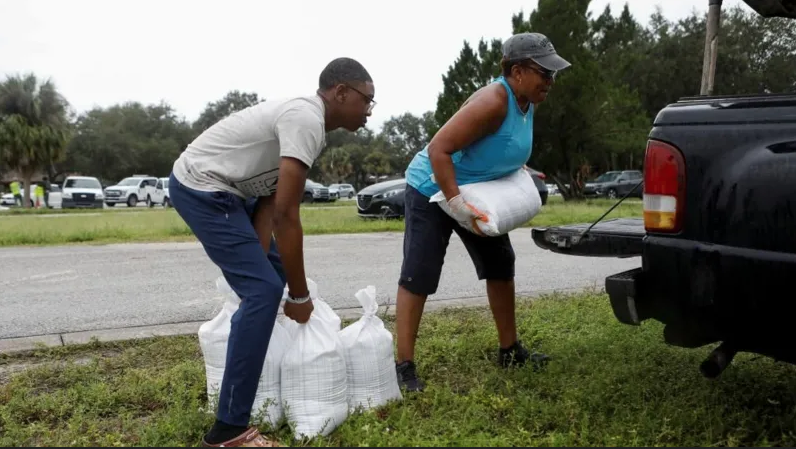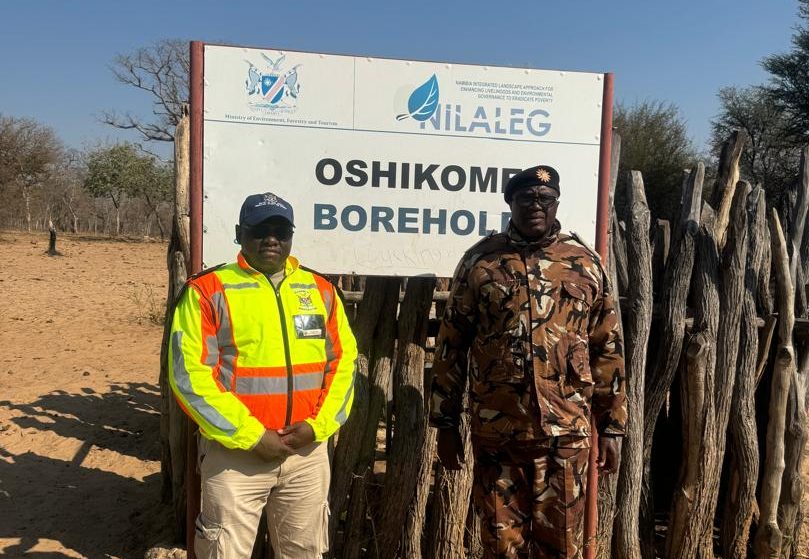330 000 households register for food aid
Written by on May 22, 2024
…As Namibia faces worst drought in 100 years
About 331 000 households have been registered countrywide to receive drought-relief food aid.
The executive director in the Office of the Prime Minister, I-Ben Nashandi, says vulnerability assessments and analyses which were conducted in 2023 estimated that 172 200 households would require assistance due to food insecurity.
He says the government has budgeted N$825 million for the drought-relief programme, but this would only cater for 172 200 households.
“The 172 000 are not the only ones in need. There are more. If you don’t help them, you are going to lead your country into a crisis, because people are going to die,” Nashandi says.
“The numbers are jumping from 172 000 to 331 000, because some people who are registered are employed. That’s why you are seeing drought-relief food being stolen.”
He says at some constituencies school principals, executive directors, teachers and nurses receive drought-relief food while the government does not have the means to feed everybody.
BUCKLING UNDER DROUGHT
Berseba constituency councillor in the //Kharas region Jeremias Goeieman says the prolonged drought is not only affecting farmers, but also villages and towns that depend on subsistence and commercial farming.
“Berseba’s backbone was farming to keep the local economies of villages such as Tses, Berseba, and Kutenhoas going. But now, we are suffering.
“It would have been better if the government gave lucerne and feed. The animals need feed,” he says.
Goeieman says the areas already faced the challenge of unemployment, and the drought is now also driving people to towns.
“Farmers who were strong, now only have empty kraals left . . . When you get to some houses, you wonder how these people get from one day to the next,” he says.
Goeieman says the Berseba constituency faces water problems.
Old water infrastructure is forcing farmers and community members to travel 10km or more to access water for their animals and their daily use.
“People have lost a lot of animals over the past eight years because of the drought . . . Perhaps the prime minister’s office can include the rehabilitation of water infrastructure in the government’s drought emergency programme,” he says.
‘RIVERS DRYING UP AT ALARMING RATE’
Zambezi governor Lawrence Sampofu says despite the region having four rivers it is still faced with a serious water crisis.
The governor and constituency councillors revealed this during a meeting with deputy prime minister John Mutorwa on Friday.
“Human-wildlife conflict is on the rise in the region due to these water challenges, as they all depend on the few resources available.
“We do have boreholes, but some of them are getting dry as underground sources are drying up. We really need more boreholes,” he said.
Kabbe North constituency councillor Bernard Sisamu said the river channels between Zambia and Namibia are drying up at an alarming rate.
By August, citizens will be able to cross on foot without any need for canoes, he said.
“I have never seen such a drought,” Sisamu said.
ADDITIONAL WATER CHALLENGES
Judea Lyaboloma constituency councillor Humphrey Divai says residents of the Zambezi region are demonstrating over a lack of drinking water 34 years after independence.
“Our people need water in the constituencies. There is a great need for more boreholes to be drilled,” he says.
Sibbinda constituency councillor Miecky Lukaezi says communities, even schools and cattle, mostly rely on water from the NamWater pipeline, but most water sources are currently closed due to arrears.
“People from Kasheshe are threatening to take their cattle to Katima Mulilo to drink from the Zambezi River,” he says.
“Desalination will really help by increasing the capacity of water availability for our industries, residents, and livestock,” Erongo governor Neville Andre says.
He says not only farmers, but also the Erongo communities are being threatened by a lack of water.
“This would have serious economic repercussions,” he says.
LOCAL ECONOMIES CONTRACTING
Hardap governor Salomon April describes the drought situation as dire.
He says the Hardap region’s economy has been on the decline since the onset of drought eight years ago, and is threatening to grind to a complete halt.
“People can’t sell their animals as the prices are not right. The dam levels are too low. Hardap is at 11%, and is only for the daily use of Mariental. We can’t water the green schemes or help farmers with water,” he says.
April says the government’s drought-relief programme is a mitigating factor, though not comprehensive.
“I am telling you, it is about survival right now as the situation is dire,” he says.
Erongo governor Andre acknowledges the severity of the situation, particularly at the Dâures and Karibib constituencies, and at Utuseb at the Walvis Bay Rural constituency.
“I think we have experienced a prolonged drought for about eight years, where we have not really received rain. So the issue is dire,” he says.
Christian Traupe of the Omaruru Farmers’ Association says the current drought in Namibia is severe.
“It is the worst we have ever experienced,” he says.
Traupe says the only hope is for good rains in the next season.
“Whether we can wait till then before losing everything remains to be seen,” he says.
GOVERNMENT ASSISTANCE
The government has approved the implementation of the drought-relief programme for the 2024/25 financial year.
An estimated N$825 million has been budget for the programme.
“A sum of N$600 million has been designated specifically for food assistance for affected communities for which distribution is expected to start from 1 July through to 30 June 2025.
“N$25 million has been earmarked for seed availability and horticultural activities, N$100 million for the continuation of the livestock support programme and another N$100 million will go towards enhancing water supply through the installation of boreholes,” Emma Theofelus, the minister of information and communication technology, recently said speaking on Cabinet decisions.
On Monday this week the Southern African Development Community (SADC) held a virtual extraordinary summit of heads of state and government to discuss the humanitarian situation in the region, following the ongoing El Niño-induced drought which has negatively impacted the lives and livelihoods of an estimated 58 million people.
Following the summit, SADC launched a humanitarian appeal to raise at least U$5,5 billion (N$99 billion) to mobilise domestic and external resources to aid affected member states.
Calle Schlettwein
INTERNATIONAL EFFORTS
Minister of agriculture, water and land reform Calle Schlettwein on Monday at the World Water Forum in Bali said Namibia is facing its worst drought in 100 years.
“This situation is indicative that surface, as well as groundwater resources, will become less reliable. This will have a negative impact on food security, health and hygiene, and overall prosperity,” he said.
Namibia, which relies heavily on shared water sources with its neighbours, is actively pursuing collaborative management strategies.
“The future of our children depends on how we address this imminent water crisis today. We must recognise the important role that women and young people can play in water management and diplomacy efforts,” Schlettwein said.
The post 330 000 households register for food aid appeared first on The Namibian.


